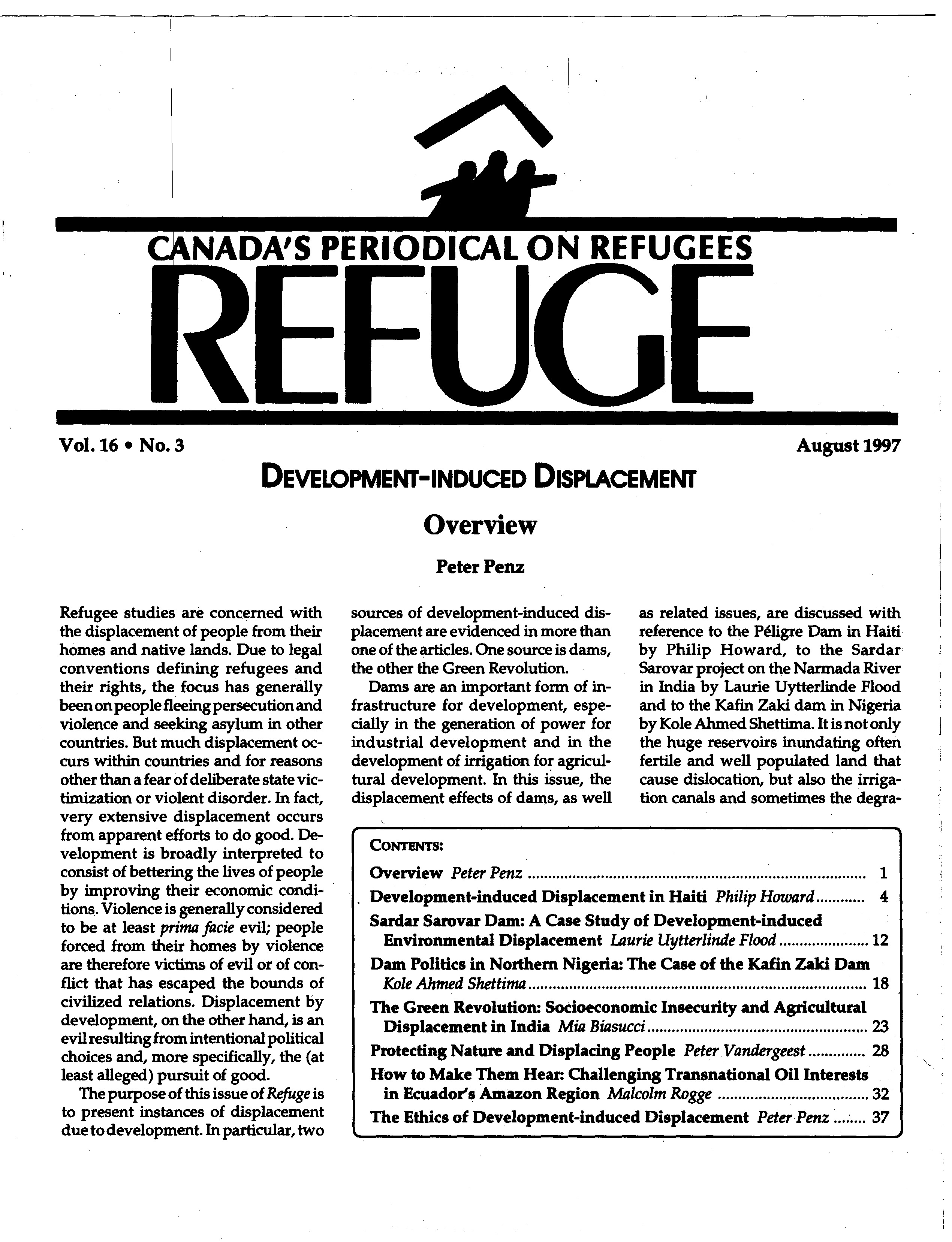The Ethics of Development-induced Displacement
DOI:
https://doi.org/10.25071/1920-7336.21926Keywords:
development, displacement, ethics, development policy, poverty, inequality, migrationAbstract
This concluding piece on the ethics of development-induced displacement notes how all of the preceding articles find the displacement of people by development policies and projects morally objectionable and that it should be prevented. The question of why it is morally objectionable, how states attempt to justify it nevertheless, and how acceptable such justifications are, is addressed in some detail. This is a discussion that falls into the terrain of the new field of development ethics. Development's promise to reduce poverty and inequality have been used to justify large projects and disruptive policies. In assessing these justifications, three lines of ethical argument are explored, one in terms of the public interest, a second in terms of self-determination, and third in terms of distributive justice. The conclusion is that, while forced migration cannot be categorically declared unjustifiable, the conditions that must be met for its justifiability are considerable.Metrics
Downloads
Published
How to Cite
Issue
Section
License
Copyright (c) 1997 Peter Penz

This work is licensed under a Creative Commons Attribution-NonCommercial 4.0 International License.
Refuge authors retain the copyright over their work, and license it to the general public under the Creative Commons Attribution-Non Commercial License International (CC BY-NC 4.0). This license allows for non-commercial use, reproduction and adaption of the material in any medium or format, with proper attribution. For general information on Creative Commons licences, visit the Creative Commons site. For the CC BY-NC 4.0 license, review the human readable summary.







